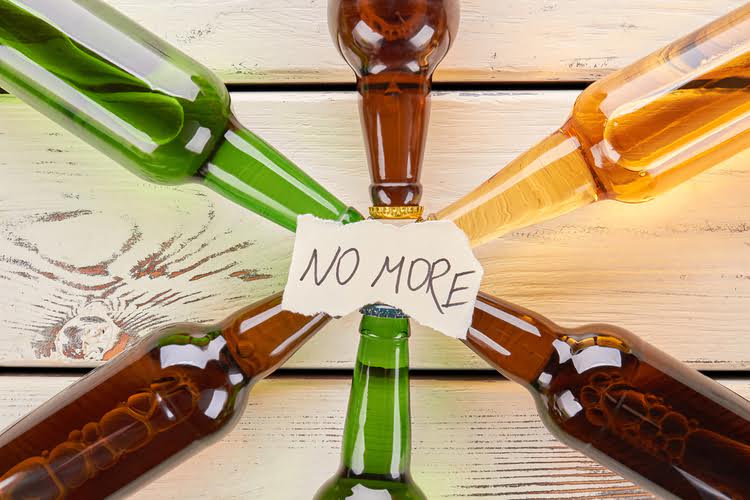Participants who consumed over 500 milligrams (mg) of caffeine daily showed disruptions in fluid balance from the diuretic effects of coffee. Alcohol decreases the amount of ADH your body produces, making it harder to retain enough fluids. The higher the alcohol content, the greater this effect will be. Individuals with pre-existing conditions that affect fluid balance, such as kidney disease or diabetes, may be at a higher risk of dehydration from wine consumption.
General Health
Most guidelines recommend aiming for a total fluid intake of about 11.5 cups (2.7 L) for women and 15.5 cups (3.7 L) for men, which includes water from both foods and beverages (16). You can also pair the listed drinks with plenty of water throughout the day to help you stay hydrated. It’s commonly added to energy drinks because it can enhance athletic performance (15). Coffee, tea, and soda contain caffeine, a central nervous system stimulant that acts as a natural diuretic to increase urine production (1). However, research is mixed on the hydrating effects of certain beverages.
Are there any health risks associated with wine dehydration?
- Let’s review some things we can do before drinking alcohol to prevent severe dehydration.
- No matter the cause of our dehydration, it’s important for us to replenish our fluids as soon as possible.
- A 2020 study notes that dehydration may increase glucagon, a hormone used to maintain glucose or sugar levels in the blood.
- But by drinking alcohol, the amount of Vasopressin your body can produce actually reduces, making it harder to retain fluids.
- While the liquid component of many drinks, and even certain foods, can help hydrate the body, quite a few liquids can have the opposite effect.
If you enjoy the taste and experience of certain spirits, wines, or cocktails, consuming them in moderation and alongside sufficient hydration can still be a part of a balanced lifestyle. By now you is wine dehydrating know that alcohol does not have hydrating properties. There are, however, some studies to suggest that alcohol may have some other health benefits when enjoyed in moderation. For example, one study, published in July 2021 in BMC, Medicine found that moderate consumption of any type of alcohol decreased risk of death in those with preexisting heart disease. Additionally, red wine is well known to contain resveratrol, an antioxidant that Mayo Clinic points out may decrease inflammation and play a role in decreasing the risk of heart disease.

Alcohol and energy drinks
According to a small study in 11 men, consuming beer with a 5% alcohol content after exercise increased urine output significantly more than consuming a sports drink did (10). Fortunately, researchers have discovered these effects are not sustained over multiple drinks. The diuretic effects are greatest as the level of alcohol in the body rises, but production of ADH recovers as the alcohol is metabolized. As ADH production recovers, the body regains its ability to conserve fluids and limit dehydration.

Foods and drinks containing adaptogens are becoming more and more popular due to their perceived health benefits. According to the Cleveland Clinic, adaptogens are helpful in fighting stress and anxiety. For example, the heart-healthy adaptogenic compounds found in a glass of wine containing polyphenols, such as resveratrol, will remain intact after a NA wine is dealcoholized. While non-alcoholic wines and wine alternatives are different, both will provide a wine-like experience without the alcohol. Although we can’t fully prevent dehydration that accompanies drinking alcohol, we can take steps to help our body process the alcohol and lessen the effects of dehydration. Let’s review some things we can do before drinking alcohol to prevent severe dehydration.
When we get dehydrated, our body is unable to regulate these important functions, putting us at risk of various health complications. One of the most common factors is drinking alcohol on an empty stomach. Alcohol enters the bloodstream through the blood vessels present in the cellular lining of the small intestine and stomach. If the stomach is empty, alcohol goes directly into the blood instead of being absorbed through the small intestine and https://margass.siniestro.xyz/how-long-does-heroin-stay-in-the-body-detection/ stomach. Therefore, drinking on an empty stomach can contribute to dehydration.

What Are Wine Grapes?
Dehydration contributes to hangovers but is just a piece drug addiction treatment of the puzzle. There are thousands of different varieties within the Vitis vinifera species – the most common is Cabernet Sauvignon. In fact, 10 grams of alcohol makes you produce 100 mL (3.38 fl. oz.) of urine 2. Sign Up for Wine Spectator’s Free Email Newsletters and stay up-to-date with all things wine.
- But more importantly, it keeps them from turning completely brown (or even black) because of oxidation.
- That means that about 97 calories in a 12-oz beer and 109 calories in a 5-oz glass of wine come from the alcohol, with the rest of the calories coming from carbohydrates.
- It is recommended to drink water alongside wine to maintain proper hydration levels.
- ADH stands for antidiuretic hormone (also known as vasopressin).
If you’ve been drinking and are experiencing alcohol dehydration symptoms, you need to restore your body’s fluid balance. Here’s how to rehydrate properly and recover from alcohol dehydration. Is there anything you can do to offset or prevent problems caused by dehydration from drinking alcohol? Furthermore, research suggests that the hydration impact of wine may be influenced by other factors such as the presence of certain compounds.
